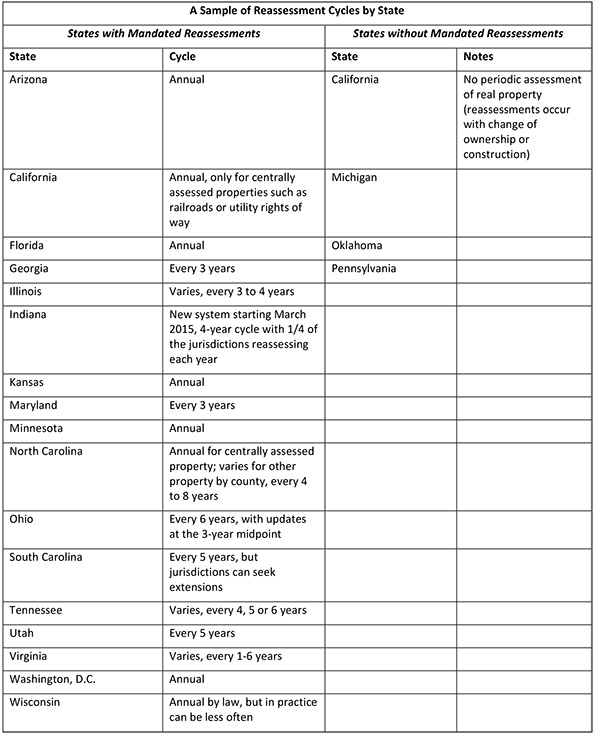Property Tax Resources
Property Assessments Present Opportunities to Reduce Taxes
The tax assessor's notice arrives in the mail with the seemingly inevitable increase in your property's assessment. Is this just another expense line item creeping upwards? Should you start budgeting now for an increase in next year's real estate taxes?
Not so fast. Taking the time to review the notice with an experienced property tax professional could reveal opportunities for significant savings.
What Can I Gain?
Successful appeals can generate thousands or even hundreds of thousands of dollars in tax savings per year. Property taxes are one of the few expense line items that a property owner can manage with an eye toward not just keeping the expense flat, but in many cases actually reducing taxes compared with the current and prior years. Yet property taxes are often overlooked as a controllable expense. As Robert L. Gordon, a partner who specializes in property tax with the law firm of Michael Best & Friedrich LLP in Wisconsin, says, "One of the things I continue to see is that clients who are sensitive to the smallest increments in their income taxes, and engage in highly sophisticated planning to manage their income taxes, will at the same time accept property tax assessment increases as an inflexible cost that cannot be managed or addressed."
For many companies, a reduced assessment is the equivalent of "found money" and is a great boost to the bottom line.
Why Assessments Change
Typical conditions triggering an assessment change include new construction, renovation or demolition. More unusual cases can occur in places like California, where a change in ownership will generate a change in the assessment. Another reason for assessment change is error correction, as when an assessor finds that they had missed the existence of a building in previous assessments.
But the No. 1 reason for assessment changes is periodic district-wide reassessments. Most states have mandatory reassessment cycles while a few do not (see table).

In Pennsylvania, which doesn't require periodic reassessment, assessments can get far afield from actual market value, contends attorney M. Janet Burkardt, managing partner of Weiss Burkardt Kramer LLC, which advises Pennsylvania counties on reassessment. "Not reassessing regularly means taxing inefficiently, because counties are not capturing changes in value," Burkardt says. "The more often a county reassesses, the more equitable and uniform the values."
Pennsylvania, Oklahoma and California are examples of states that lack mandated reassessments. States that do reassess vary widely in frequency: Florida, Minnesota, Arizona, Kansas and Washington, D.C., are some states that reassess every property, every year. Some others – Wisconsin, for example – require annual reassessments, but in practice those don't always happen.
Don't Miss an Opportunity to Appeal
Even if an assessment goes unchanged in a given year, there may still be opportunities to reduce real estate taxes. In many states, like Pennsylvania, there is a ratio calculation that does change annually. For example, a property in Butler County, Penn., generated the same $100,000 assessment in 2012 and in 2014. By application of this ratio calculation for each year, the property is on the tax rolls at a fair market value of $523,000 and $740,000 for these years, respectively. If the property is worth $600,000, that would mean an appeal opportunity in 2014, but not in 2012.
Practices vary widely by state and even within states, so reviewing all assessments annually can turn up opportunities that might otherwise be missed.
What Will it Cost?
Filing fees for property appeals are modest, and in many jurisdictions the initial appeal is free. Fees in other places average about $100. The cost of the appraisal will vary based on the property's type, uniqueness, and the relative ease or difficulty of the valuation calculation. Commercial appraisals can range from $2,500 to $25,000 or more. Legal fees vary, but it is common for property tax attorneys to work on a contingency-fee basis, where there is no fee unless an appeal achieves tax savings.
Experience Matters
Asking an experienced property tax professional to evaluate assessment notices pays off. Working with a professional who knows the nuances of the jurisdiction, the law, how the system works in practice, which appraiser is right for the job, and who has a working relationship with the government employees that administer that system can be the difference between winning and losing appeals. Finding the right person to evaluate your assessments on a regular basis is the first step toward realizing tax savings.

American Property Tax Counsel
Recent Published Property Tax Articles
Subsidies Pose Property Tax Puzzle in Public-Private Partnerships
With the number of public-private partnerships for constructing public facilities on the rise, communities across the country wrestle with the question of how to treat such arrangements for ad valorem property tax purposes. In most instances, private developers and taxing entities take opposing positions on the issue.
Public-private joint ventures have...
Read moreWhen Property Tax Rates Undermine Asset Value
Rate increases to offset a shrinking property tax base will further erode commercial real estate values.
Across the country, local governments are struggling to maintain revenue amid widespread property value declines, as a result they are resorting to tax rate increases. This funding challenge increases the burden on owners of commercial...
Read morePennsylvania Court Reaffirms Fair Property Taxation Protection
A tax case in Allegheny County also spurs a judge to limit government's ability to initiate reassessments of individual properties.
Pennsylvania taxpayers recently scored an important victory when the Allegheny County Court of Common Pleas reasserted taxpayers' right to protection against property overassessment, while limiting taxing authorities' ability to proactively raise...
Read more
